
Deepak Badarinath, University of Oxford
Deepak studied Mathematics and statistics at the Indian Statistical Institute, during his undergrad. To advance his studies, he moved to Bonn, Germany where he completed his Master’s in Mathematics. During his Master’s, he was mainly interested in probability, mixing times, Markov chain Monte Carlo methods, as well as machine learning and reinforcement learning. In his thesis, he applied deep reinforcement learning techniques to optimize energy asset portfolios.
At StatML, Deepak with his advisor Agni Orfanoudaki wishes to develop machine learning algorithms to solve the single-resource airline revenue management problem. Further, they plan to run a pilot program to validate the performance of these algorithms in a real-world setting. In his spare time, Deepak likes to cycle, lift weights, and cook food to sustain his other hobbies.

Stefano Cortinovis, University of Oxford
Stefano is from Italy and holds a BSc in Economics and Computer Science and an MSc in Data Science from Bocconi University. During his studies, he developed a strong interest in the philosophical, theoretical, and practical aspects of the Bayesian methodology. In his master’s thesis, Stefano studied multivariate species sampling models, a recent attempt to define a unifying framework for discrete dependent nonparametric priors. In his spare time, Stefano enjoys playing chess and hiking. At StatML, he wishes to strengthen his knowledge of Bayesian nonparametrics and Bayesian computation, and to explore areas of statistical machine learning with which he is less familiar.

Alex Forster, University of Oxford
Alex is joining StatML after finishing his Bachelor’s and Master’s degrees in Maths at Cambridge. In his master’s, Alex specialised in statistics and machine learning, and wrote his Part III essay on generative adversarial networks and their application in biomedical imaging. Alex’s research interests include time series analysis, high dimensional statistics, and network analysis. He is looking forward to exploring applications in finance under the joint supervision of Mihai Cucuringu and Alvaro Cartea at the Oxford Man Institute of Quantitative Finance. Originally from Southampton, Alex enjoys playing cricket and watching sport in his spare time.
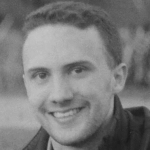
Samuel Howard, University of Oxford
Sam is originally from Stockport and studied for a Master’s in Mathematics at Oxford University. During his degree, he specialised in functional analysis and probability theory and studied applications of optimisation methods to the best-of-both-worlds bandit problem for his master’s dissertation. He also previously studied bandit problems during a research internship at the Oxford Mathematics Department in 2021. As part of the programme, Sam intends to study reinforcement learning theory, while also widening his knowledge of other areas of statistics and machine learning. His first mini-project will be supervised by Patrick Rebeschini and Ciara Pike-Burke and will investigate high-dimensional online/reinforcement learning for low-dimensional structures. In his spare time, Sam enjoys hiking and running, and also playing the guitar and double bass.
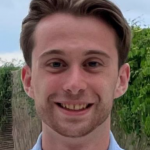
George Hutchings, University of Oxford
George is from Dorset and received his MSci in Mathematics from Imperial College London in 2022, where his dissertation was on statistical tests to detect the number of clusters present in the data. During his study at Imperial, he enjoyed working on theory with clear practical applications. At the StatML George hopes to deepen his understanding of Bayesian statistics and machine learning methods. His DPhil project involves developing Bayesian statistical machine learning methods to build prognostic models for Multiple Sclerosis. In his spare time George enjoys running, watching and playing tennis and football.
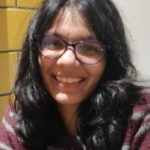
Hetvi Jethwani, Imperial College London
Hetvi studied Mathematics and Computing at Indian Institute of Technology, Delhi and graduated in 2022. Hetvi became interested in statistics and machine learning through intensive coursework and exploring a variety of problems that included work on evolvability, multidimensional dataset summarization, and reinforcement learning. Within StatML, one of Hetvi’ s broad focus areas is to learn how to use statistics to enhance our understanding of biological systems. Outside studies, Hetvi likes to organize with Queer in AI, to make or geek out about art, to quiz and to travel.
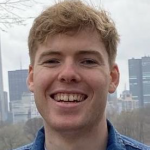
Brendan Martin, Imperial College London
Brendan grew up in Ireland. He moved to Scotland to study Mathematical Physics at the University of Edinburgh. Following a year abroad at the University of California, Berkeley, Brendan returned to Edinburgh for a masters. In his master’s project, he used deep learning methods to study phase transitions in statistical physics. Prior to joining StatML, he worked as a developer at the Edinburgh Parallel Computing Centre. Whilst on the programme, he is excited to explore Bayesian statistics, time series and machine learning and their application to areas such as Astro statistics and finance. Outside of academia, Brendan enjoys playing the fiddle as well as playing rugby and football.
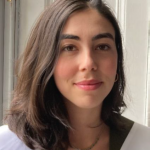
Guiomar Pescador Barrios, Imperial College London
Guiomar is originally from Spain. She obtained her undergraduate degree and integrated Master’s in Mathematics with an emphasis on Statistics and Machine Learning from the University of Edinburgh. Her main interests include Bayesian modelling and computational methods. For her master’s dissertation, Guiomar focussed on developing non-parametric estimation methods applied to the evaluation of medical tests. Moreover, for the last two summers, she worked as a software developer engineer at Amazon, where she designed a new web component for Amazon Business.
At StatML, she hopes to study statistical methods, Bayesian vs. frequentist approaches that can be implemented in different scientific areas. She would also like to explore the ethical matters surrounding statistical procedures in AI.
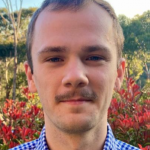
Nicolas Petit, University of Oxford
Nicolas was born in Paris before moving to live in Sydney. He completed an undergraduate degree in applied mathematics at the University of Sydney. His honours dissertation project used a combination of neural networks and dimensionality reduction techniques to forecast meteorological time series data. While on the programme, Nicolas will be working with his supervisors Mihai Cucuringu and Álvaro Cartea on problems in quantitative finance. His interest in quantitative finance was sparked by internships at market making firms. Previously, he has worked as a high school maths teacher and as a maths tutor at the University of Sydney. In his free time, Nicolas enjoys making electronic music, going on bush walks and playing poker.
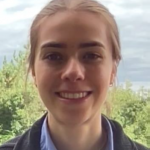
Anya Sims, University of Oxford
Anya is originally from Oxford and completed an integrated Master’s in information and Computer Engineering at the University of Cambridge, where she focussed on stochastic processes, computational methods, and machine learning. For her masters project she worked on automatic speech recognition, specifically with the goal of improving the efficiency of decoding in neural transducers. Anya has previously worked in software engineering companies in Bristol and Bangalore, and with the CBL group in Cambridge on identifiability in variational autoencoders.
She joins StatML hoping to study Bayesian experimental design and non-stationarity in reinforcement learning. In her spare time, amongst other things Anya enjoys painting, windsurfing, and more recently kitesurfing.
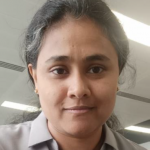
Pavithra Srinath, Imperial College London
Pavithra is a part-time PhD student at the Department of Statistics, Imperial College, London. She is supervised by Prof. Ciara Pike-Burke and is also a part-time data scientist at The Trade Desk AI lab in London. Pavithra is interested in sequential decision-making problems in noisy environments such as in computational advertising. She is passionate about driving interactions between academia and industry. Previously, Pavithra received a Master’s in Operations Research from Columbia University, USA, and a bachelor’s degree from R. V. College of Engineering, Bangalore, India.
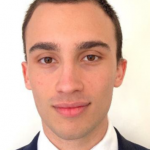
Marcos Tapia Costa, Imperial College London
Before moving to the UK for his university studies, Marcos studied at an international school in Madrid, Spain, for over 16 years. As part of his integrated masters at the University of Cambridge, he studied Electrical and Information Engineering for his BA, and Information and Computer Engineering for his MEng. During his masters, Marcos focused mainly on aspects of computational machine learning and signal processing, while his thesis focused on developing central limit theorems for a specific class of Lévy processes which is loosely related to his first mini project on the StatML course. During the past two summers, Marcos has worked as a research assistant at the IfM Institute at the University of Cambridge and as a Software Engineer at Morgan Stanley.
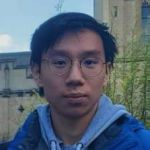
Jeffrey Tse, University of Oxford
Jeffrey is from Hong Kong and studied at Pui Ching. He spent his undergraduate years at the University of Waterloo in Canada, where he majored in pure mathematics, statistics and combinatorics & optimization. Jeffrey also studied at the University of Warwick for a year. Before his DPhil, he obtained his master’s degree (OMMS) from Balliol College, Oxford. He is interested in econometrics, causal inference and theoretical statistics and is hoping to study them further whilst broadening his knowledge of statistics. In his spare time, Jeffrey enjoys reading novels and collecting small trinkets of sentimental value.
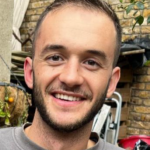
Joshua Willcox, Imperial College London
Joshua completed his undergraduate degree in mathematics from the University of Cambridge, where he specialised in applied mathematics with a particular emphasis on fluid dynamics. After graduating, Joshua taught maths at a secondary school alongside working as a personal trainer before completing his MSc in Statistics at Imperial, where he focused on simulation methods and spatial point processes. It is in the area of spatial point processes that he hopes to research as part of StatML. In his free time, Joshua particularly enjoys endurance sports and spends a lot of time running, swimming and cycling. He is also a keen boxer, which is something he hopes to pursue during his time at Imperial.

Linying Yang, University of Oxford
Linying obtained her bachelor’s in Statistics from Fudan University and Master’s in Computational and Mathematical Engineering from Stanford University, where she developed several statistical methodologies to facilitate Stanford Hospital on capacity planning during COVID-19 crisis. After graduating from Stanford, she worked in Microsoft New England Research Centre for two years as an AI Data & Applied Scientist, scoping complicated business demands into statistical and machine learning problems and applied cutting-edge ML algorithms to solve them. She used to help the Department of Education, Tasmania to build a model that predicts vulnerable students and suggests interventions when she was in Microsoft. Having been interested in Causal Inference, Bayesian Statistics, Stochastic Process and Representation Learning, she is passionate about making ML solutions more responsible, transferable and explainable. Besides Statistics and ML, Linying loves travelling, food, nature and animals. She enjoys diverse cultures and hanging out with friends. She is always curious and eager to try new things